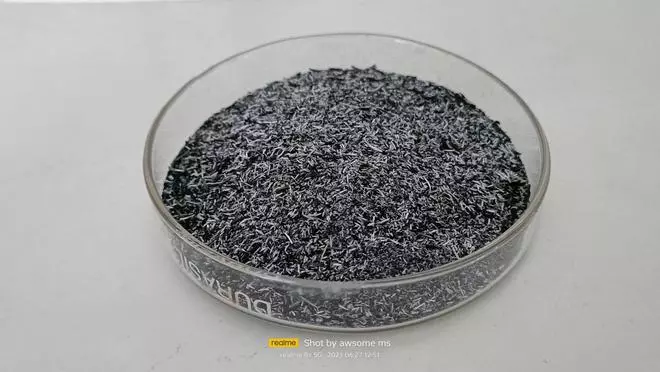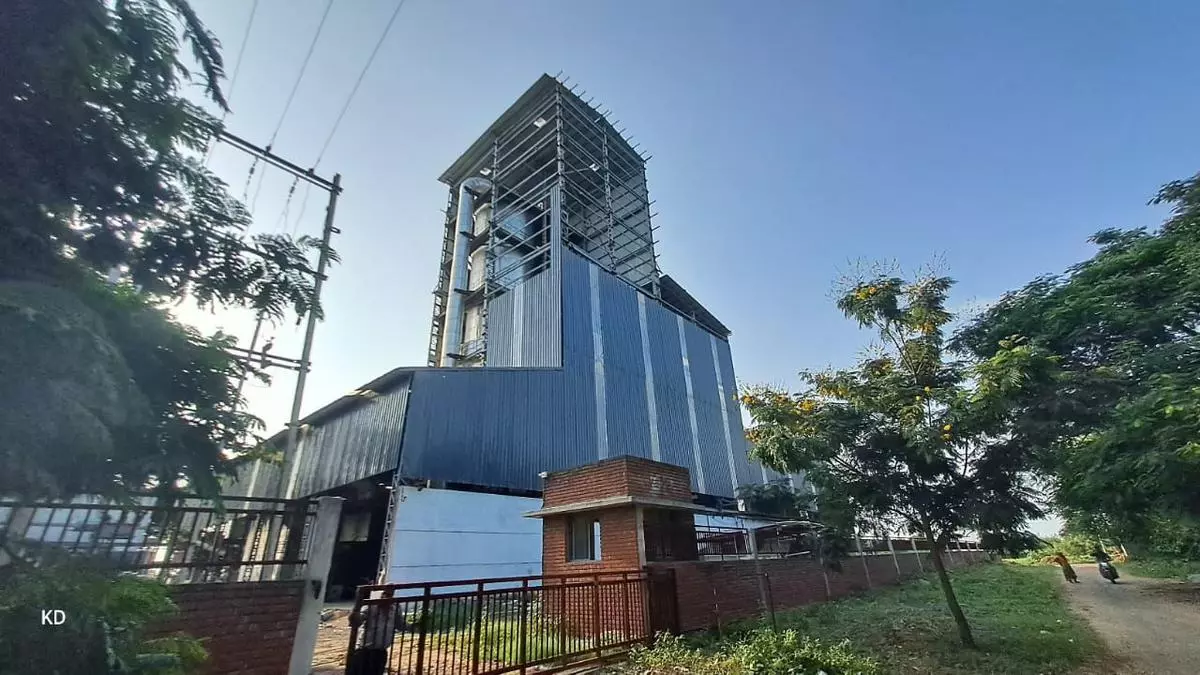Gujarat-based start-up finds solution to problem of rice husk ash
A Gujarat-based start-up Brisil Technologies Pvt Ltd has found a solution to the problem of rice husk ash by producing silica and other products from it. “We have developed a technology, a patented chemical process, which uses the ash to produce precipitated silica, which is one of the most commonly used chemicals. It is used in tyres, footwear, rubber products, toothpaste, soap, cosmetics, animal feed, food, paints, and many other applications,” said the company’s founder Tanmay Pandya.
Brisil founder Tanmay Pandya.
The start-up can produce silica for all major application uses. Currently, silica is produced through a conventional sand-based process that is energy-intensive and carbon-emitting. River sand is also mined for this, thus affecting the ecology.
Greener alternatives
For every one tonne of silica produced, Brisil saves over 10 tonnes of carbon emission as husk is the biofuel and its process saves 50-65 per cent of carbon emission compared to the conventional silica process. It also reduces over 2 tonnes of ash from landfills, reducing air pollution.
“We provide greener alternatives to our customers. Our bio-silica is a direct replacement of the conventional silica and is available at similar or better prices,” he said.

A sample of rice husk ash
With companies looking to reduce carbon emission and opting for alternative raw materials, Brisil thinks its product can suit such customers. “Our product helps our customers in achieving their carbon emission reduction targets and improve their ESG report cards,” Pandya said.
Rice husk is one of the predominantly used biomass fuels in generating clean energy. It is used to produce thermal and electrical energy by rice mills, power plants and industries in rice-producing zones across the world.
Dumping a big problem
However, using rice husk as a fuel results in the generation of rice husk ash. An industry or power plant using husk as fuel generates 5-100 tonnes of ash every day. Dumping the ash is a big problem for the industry.
“More than 15 million tonnes of ash is produced globally every year. It doesn’t have any commercial application, and hence it is either thrown in open grounds or used for land-filling. Due to low density, the ash is spread in the air of nearby zones causing air pollution and silicosis to the people residing in the nearby zone,” the company’s founder said.
Increasingly stringent pollution control norms are also regulating the dumping of ash, increasing the problem for the industry, he said.
Founded in 2016, Pandya said his inspiration came from a husk-based power generation company which sought to develop a technology to use rice husk ash. “We realised it was a huge problem and will only increase due to the rising adoption of biofuels. On the other hand, silica can be produced from the ash and has a huge market in many industries. This is how I got into it,” Pandya said.
Set to expand capacity
Brisil, seed-funded by CIIE IIM Ahmedabad, carried out research and development and ran some pilot trials during 2017-18. It then started a semi-commercial plant in Gujarat in 2018. After tasting success with the technology, a big plant on a commercial scale was set up. It became operational in 2022.
This plant can consume 18,000 tonnes of ash every year and produces 10,000-12,000 tonnes of silica. Currently, we have two plants operational and we plan to expand capacity by setting up more plants in and outside India, the company’s founder said.
Brisil is expanding its capacity and will set up three more plants in the country over the next three years, increasing its capacity to one lakh tonnes per year of ash consumption. “We are also planning two plants outside India in the next three years. The company is already working with the joint venture partners for these plants. We have already tied up with ash-generating companies and potential customers for sales of silica produced from these plants,” Pandya said.
Silica opportunity
From a climate point of view, Brisil’s technology reduces the dumping of the ash and air pollution. “Currently, the ash generated by using rice husk as a fuel is totally wasted and is generally dumped in the open ground,” he said.
The company — which has 35 customers across the globe including Fortune 500 companies in the rubber, tyre and footwear segments — uses patented technology to produce bio-based advanced chemicals from biowaste. “Our technology is a chemical process that uses a biowaste to produce advanced chemicals,” Pandya said.
Consumption and production of silica, currently 6 million tonnes annually, will likely double over the next 7-10 years which means its product can help cut carbon emissions by 4-7 million tonnes on an annual basis, he said.
“Our product has been approved by big brands in the tyre and rubber segment and trials are being held by many customers in the FMCG, food, cosmetics, and oral care sectors,” Pandya said.
Working with rice straw
Besides India, the company has distributors and partners in South-East Asia, Japan, Europe, the US, and South America. Brisil, which has earned a revenue of ₹6 crore, targets to top ₹20 crore by the end of the current fiscal. “We are profitable at the gross level and about to achieve net profitability. Brisil has raised funding in the form of debt, equity and grants, mainly from ACT. Equity funding has come from CIIE, IIM Ahmedabad, local HNIs, and a Japanese company,” he said.
Other than rice husk, the company is working with bio-diesel producers on the ash generated from rice straw and other biofuel sources to produce silica, Pandya said.
